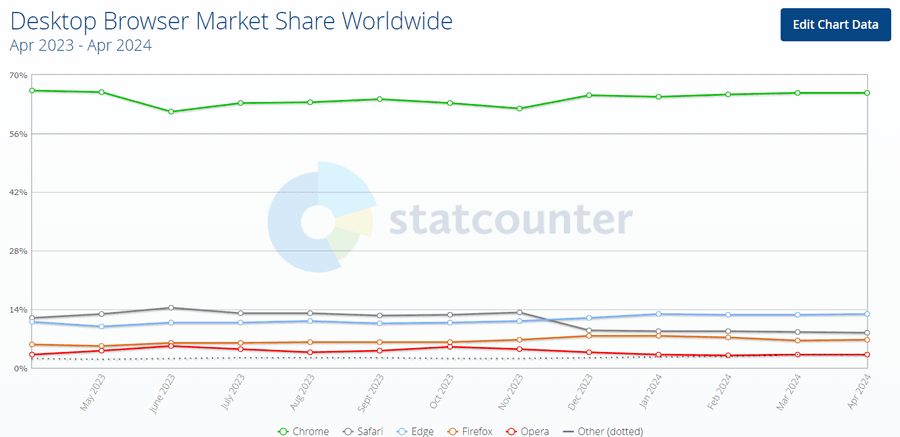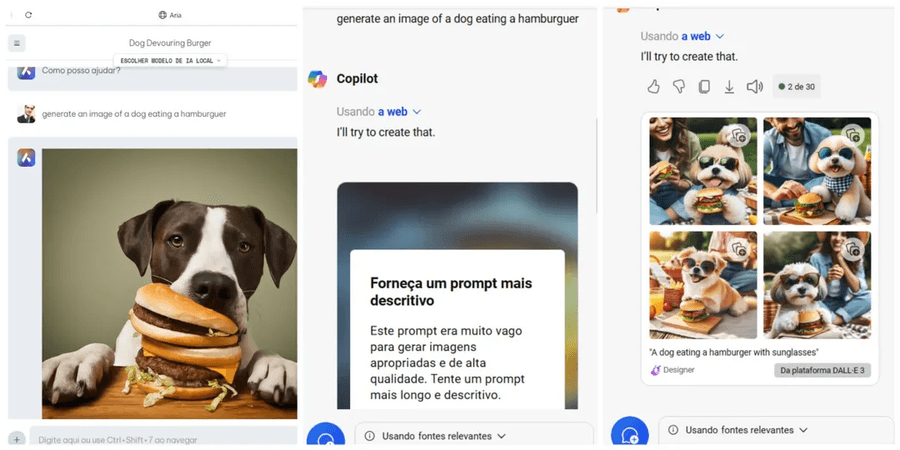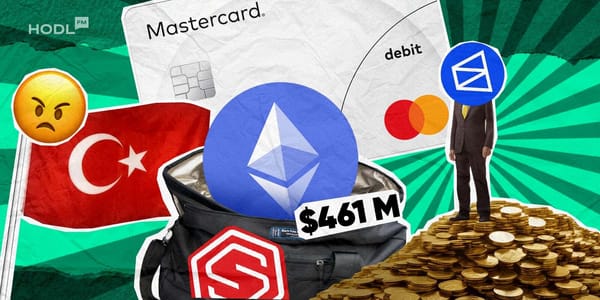Hi dear reader! In this weekly digest, we delve into a diverse array of topics. Russian adoption of stablecoins facilitates trade with China; a fortunate individual reclaiming access to a long-lost Bitcoin wallet with the help of hackers. Additionally, we explore the potential risks and rewards associated with Grayscale’s anticipated Ether exchange-traded fund and provide an insightful comparison of AI-enhanced web browsers.

Stablecoins As A New Avenue for Russian-Chinese Trade
Russian commodity companies attempting to conduct financial operations with their Chinese counterparts have adopted a new method for sealing deals: stablecoins. The fact that major Russian firms are now turning to blockchain technology two years after the full-scale invasion of Ukraine in February 2022 underscores the long-term impact of international restrictions on the economy in response to the war.
Russian Commodity Traders
Russian companies trading commodities, from metals like nickel and steel to timber, have faced challenges with receiving payments for their goods and procuring equipment and raw materials since the start of the conflict.
At least two of the largest metal producers, neither of which are sanctioned, have started using stablecoin Tether and other cryptocurrencies for some of their cross-border transactions with predominantly Chinese clients and suppliers, according to top company executives.
According to them, the alternative often involves slower transactions or, even worse, the risk of having an overseas bank account frozen. Several unsanctioned companies have opened numerous accounts across different countries, only to see them frozen consecutively, one source said.

Even in China, which hasn’t joined the international sanctions and has become a primary export market for many Russian goods as well as a supplier of goods and equipment, financial transactions have become more difficult this year. This is largely due to the U.S. Treasury Department’s threat of secondary sanctions on lenders facilitating sanction evasion, leading to stricter compliance measures.
Using cryptocurrencies for payments is not uncommon for sanctioned countries. Transactions involving cargoes from Venezuela, home to the world’s largest proven oil reserves, are increasingly conducted using Tether. Many deals, often struck at steep discounts, are made through intermediaries based in Dubai.
Lucky Guy Reclaims Bitcoin Wallet After 11 Years with the Help from Hackers
Michael (name changed) stored his cryptocurrency in a digital wallet secured by a password. He generated the password using the RoboForm password manager and saved it in a file encrypted with TrueCrypt. At some point, this file got corrupted, and Michael lost access to the 20-character password he had generated to protect his 43.6 BTC.
Two years ago, when “Michael,” the cryptocurrency owner, contacted Joe Grand, a well-known hardware hacker, for help in recovering access to the Bitcoins he had stored in an encrypted format on his computer, Grand turned him down. Last June, Michael reached out to Grand again, hoping to persuade him to help, and this time, Grand agreed to give it a shot, partnering with a friend named Bruno, who also specializes in cracking digital wallets.

A Detailed Guide on Cracking a Software Wallet
Grand and Bruno spent several months reverse-engineering the version of RoboForm they believed Michael used in 2013 and discovered a significant flaw in the pseudo-random number generator used for password creation. RoboForm unwisely tied its randomly generated passwords to the user’s computer date and time.
If Michael could recall the exact day or general time frame in 2013 when he generated the password and the parameters he used, it would narrow down the possible password options. Then, they could hack the RoboForm function responsible for checking the computer’s date and time, tricking it into thinking the current date was the day in 2013 when Michael generated his password. RoboForm would then produce the same passwords it generated in 2013.
After reviewing other passwords Michael generated with the program, Grand and Bruno configured RoboForm to generate 20-character passwords with uppercase and lowercase letters, numbers, and eight special characters from March 1 to April 20, 2013.
They couldn’t generate the correct password. So, they extended the time frame from April 20 to June 1, 2013, using the same parameters. Still no luck. Michael says they kept coming back to him, asking if he was sure about the parameters he used. He stuck to his original answer.
“They were annoying me because, who knows what I did 10 years ago,” he recalls. Not the politest, don’t you think?

Finally, in November of last year, they found the correct password. It was created on May 15, 2013, at 16:10:40 GMT. Grand and Bruno took a percentage of Michael’s Bitcoins for their work and then gave him the password to access the rest.
At the time, Bitcoin was worth $38,000 per coin. Michael waited until the price rose to $62,000 per coin and sold some of them. Now he has 30 BTC worth $3 million and is waiting for the value to rise to $100,000 per coin.
Michael says he’s lucky he lost the password years ago because otherwise, he would have sold the Bitcoin when it was worth $40,000 per coin and missed out on an even greater fortune.
Grayscale’s Unlaunched Ether ETF Could Lose $110 Million Daily
Disappointing forecasts were given by the crypto industry’s leading data-driven research firm, Kaiko. Grayscale’s soon-to-be-launched spot Ether exchange-traded fund could lose an average of $110 million a day if it follows the same pattern as its Bitcoin Trust in the first month.
In recent months, Grayscale’s ETHE has experienced trading discounts of as much as 26% compared to its net asset value (NAV). Researchers at Kaiko note that once it becomes a spot ETF, it’s “reasonable to expect” outflows or redemptions as the discount narrows.
The ETHE discount has already decreased since May 23, when the Securities and Exchange Commission (SEC) initially approved spot ETH ETFs, even though it hasn’t started trading as a spot ETF yet.
On May 1, ETHE traded at a discount of over 25%, then gradually decreased throughout the month amid speculation that the SEC would approve spot ETH ETFs, and on May 30, the discount quickly dropped to 1.31%, according to the data.

Should Grayscale’s upcoming spot ETH ETF mirror the trajectory of its Bitcoin counterpart, it could potentially exert temporary downward pressure on the ETH price. However, even if the Ether ETF’s inflow “disappoints in the short term,” the approval will have significant implications for ETH as an asset, removing some regulatory uncertainty that has affected ETH’s performance over the past year.
AI-Enhanced Browsers: A Comparative Guide
If you enjoy the convenience of AI tools in your web browser, you now have three solid options: Opera with Google’s Aria, Edge with Microsoft’s Copilot, and Brave with Leo, powered by Mistral and Anthropic. Let’s take a look at their capabilities.
Opera
Opera, the company behind the most popular desktop browser, now lets users of its AI assistant Aria easily create images using Google’s latest image generation model, Imagen 2. Additionally, the update allows Opera’s AI to read out responses in a conversational tone thanks to Google’s text-to-audio model.
With the integration of Google’s Gemini model, Opera can now offer users higher-quality answers, comparable to those generated by GPT-4. Currently, GPT-4 and Gemini 1.5 Pro hold the top spots on the Chatbot Arena leaderboard, a ranking based on blind user ratings.
Edge
Edge has seen a noticeable resurgence in recent months. Microsoft has heavily invested in AI, updating its once-maligned Edge browser with numerous AI-powered features. Between Opera and Edge, Copilot might have an edge in text responses, but Google’s Imagen 2 outshines DALL-E 3 in terms of realism.
By switching to a Chromium-based engine and incorporating AI capabilities, Microsoft’s browser has climbed the ranks, surpassing Apple’s Safari to take second place by the end of 2023. This turnaround coincided with Microsoft’s announcement of its unified Copilot interface on September 26, 2023.

Brave
Privacy-conscious users might prefer Brave, the well-known crypto browser. Brave has integrated its own AI assistant, Leo, directly into the browser. Leo can answer questions, provide summaries, generate new content, and more, though it can’t yet create images.
Leo utilizes large language models like Mixtral 8x7B, Claude Instant, and Llama 2 13B. Unlike other AI assistants, Brave hosts these models on its own servers, ensuring that user input and conversations with Leo are not stored or used for model training.
For illustration, Aria interpreted a simple request for a dog eating a hamburger realistically. Copilot required a more detailed prompt, producing a less realistic image with a 3D-rendering aesthetic.

Between Opera and Edge, Copilot might have the upper hand in text responses, but Google’s Imagen 2 surpasses DALL-E 3 in realism and coherence. Aria also proved to be more versatile and creative, understanding shorter prompts better.
More Info:
- Digest 57: Hermetica’s USDh Launch, Meme Coin Downturn, SEC vs. Ripple’s Stablecoin, and Japanese Exchange’s Nasdaq Debut
- Digest 58: Japan’s NFT Gaming Market Expands, Coinbase Eyes Australian Pension Sector, Bitcoin-CPI Correlation & Hedge Fund’s $2 Billion Bitcoin Investment
- Digest 59: Gensler’s Fury, Gala Games’s Returns, Justice for SBF Team & NEAR’s AI Visions in Tech
And there you have it, folks; this week has been nothing short of eventful. Stay tuned for more updates during the week, and remember, even if your browser can’t create you a hamburger-eating dog, it might just find our digest next week!
Disclaimer: All materials on this site are for informational purposes only. None of the material should be interpreted as investment advice. Please note that despite the nature of much of the material created and hosted on this website, HODL FM is not a financial reference resource and the opinions of authors and other contributors are their own and should not be taken as financial advice. If you require advice of this sort, HODL FM strongly recommends contacting a qualified industry professional.



